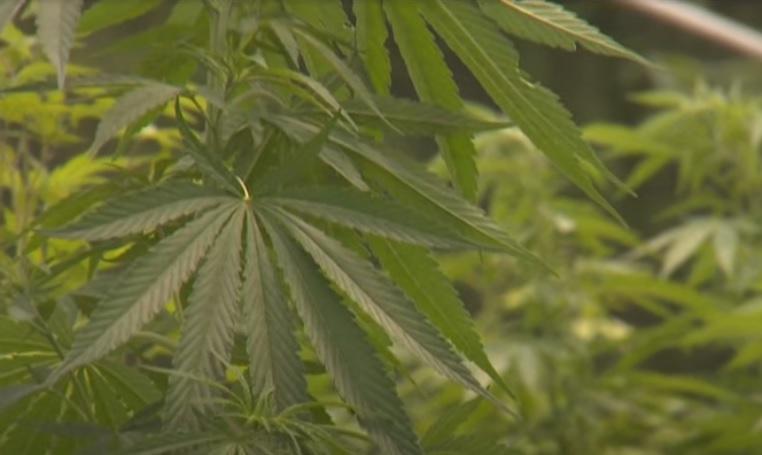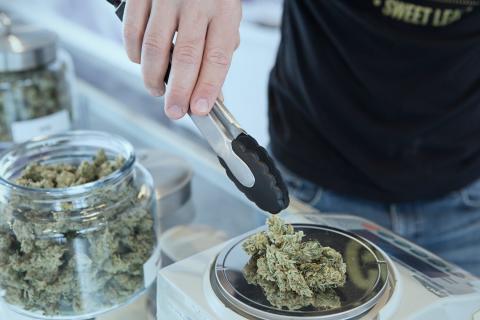The legislative procedure for the proposal for an amendment to the Law on the Production and Trafficking of Illicit Drugs, which was submitted by part of the opposition, is coming to an end. The proposal was supported on the meeting of the parliamentary Health Committee on 17 February by eight members of the parliamentary committee on health, while one more was against.
The amendment was submitted to the legislative process by the parliamentary groups SD, Levica, LMŠ, SAB and NP. On behalf of the proponents, Dejan Židan (SD) and Violeta Tomić (PS Levica) explained today that they want to clearly define that the cannabis plant is a cultivated plant, which should be separated from cannabis as an illicit drug. According to them, this would correct the error resulting from the incorrect translation of the European Convention on Narcotic Drugs, which also led to the stigmatization and criminalization of the plant.
According to the proponents, the convention clearly defines the difference between cannabis and the cultivated cannabis plant, which is crucial for defining legal economic and amateur activities that do not require a drug control system, but only define the conditions of legal activities (agriculture, industry, horticulture, etc.).
The proposal would define the conditions under which the cannabis plant can be legally grown for industrial, food and horticultural purposes. As they explained, the goal is also to avoid monopolistic, especially French pressure on the Slovenian market, which eliminates old Slovenian varieties by setting 0.2 percent THC.
Although they emphasized that the proposal did not interfere in the field of medical or recreational use, and the proponents, following the opinion of the parliamentary legislative and legal service, also submitted several amendments, a number of concerns were heard at the meeting. State Secretary at the Ministry of Health Franc Vindišar explained that the proposal was not appropriate in the government’s opinion. They estimate that “the regulation does not only concern the agricultural production of industrial hemp, but also means deregulation, sometimes legalization, which will contribute to greater use of cannabis for recreational purposes”.
As he said, such important changes require an in-depth analysis in terms of potential benefits and, above all, negative health, social, security, financial and other consequences, which the proposal does not include. He assured that the terminology in Slovenian legislation is regulated in accordance with all conventions and European regulations, but at the level of the Ministries of Health and Foreign Affairs they will harmonize and ensure the translation of the convention, which was already proposed by the Health Committee. The Ministry of Health has also prepared a bill on the cultivation and trade of cannabis for medical purposes, which is currently in interdepartmental coordination.
He also criticized the proposal discussed today for being partial and for the new solutions not to be followed by a change in control and penal provisions. From the point of view of public health protection, according to him, the proposed limit of one percent THC in cannabis plants, which can be grown for seeds and fiber for industrial, food and horticultural purposes, is not particularly acceptable.
Several representatives of non-governmental organizations and institutions working in the field of health and addiction then presented their views. The proposal was largely opposed, described as ill-conceived and warned that it means liberalization in this area and leads to greater availability of cannabis, which means greater use and harmful consequences for public health, especially for children and adolescents.
The director of the National Institute of Public Health, Milan Krek, pointed out that “cannabis is the most commonly used drug in Slovenia today, ten times more used than other drugs”. However, the experience of other countries with cannabis liberalization is poor in terms of public health. According to him, the bill also “seriously interferes in the field of state security”, as it facilitates the work of organized crime in the production and trafficking of drugs in certain segments.
Robert Pavšič (LMŠ) pointed out that there are many plants whose use can have harmful consequences if misused, mentioning, among others, pears, plums, barley and poppies, as they can all be made into drugs – legally or illegally. Alcohol abuse can have dire consequences, but wine and beer are categorized as food, he added.
Like Tomić, he pointed out that today industrial hemp products sold in Slovenia mostly come from abroad. According to Tomić, Slovenian farmers are not competitive. Matjaž Grkman from the Ministry of Agriculture, on the other hand, said that Slovenian farmers, like others in the EU, could grow industrial hemp, but the problem was in the farmers’ organization itself.



 The referendum questions were: Should Slovenia allow the cultivation and processing of cannabis for medical purposes on its territory? and Should Slovenia allow the cultivation and possession of cannabis for limited personal use on its territory?
The referendum questions were: Should Slovenia allow the cultivation and processing of cannabis for medical purposes on its territory? and Should Slovenia allow the cultivation and possession of cannabis for limited personal use on its territory? The Pirate Party, as the organizers of the campaign for all three consultative referendums, welcomed the results, which show voter support for all four referendum questions. However, they are disappointed by the lack of substantive discussion regarding the referendum question on the cultivation and possession of cannabis for limited personal use.
The Pirate Party, as the organizers of the campaign for all three consultative referendums, welcomed the results, which show voter support for all four referendum questions. However, they are disappointed by the lack of substantive discussion regarding the referendum question on the cultivation and possession of cannabis for limited personal use.
 To read the brief, please
To read the brief, please 
 You can download the report here:
You can download the report here: 







